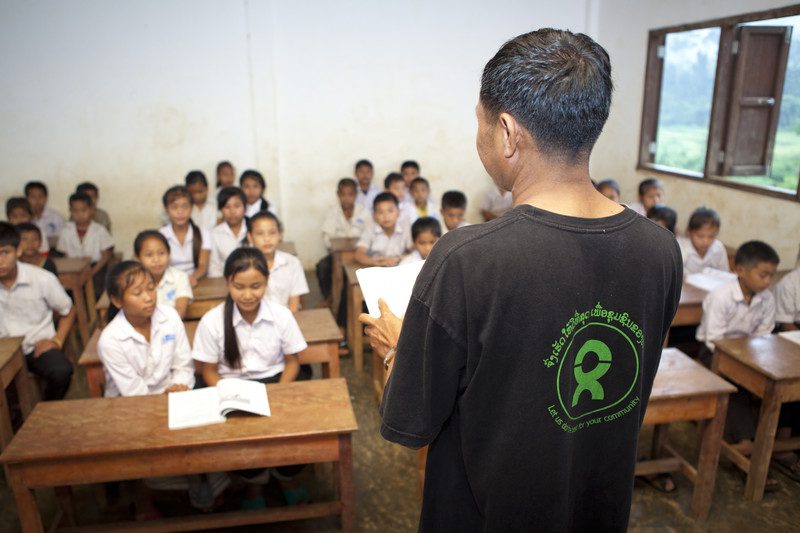resources for teachers
We all know that the young people of today shape the world of tomorrow. Our work internationally and with Australian schools is shaped by our belief that education is a powerful tool to help us work towards a just world without poverty.
So if education is so important, why is half the world late for school?
The main reason is poverty. Primary education helps poor children break out of poverty, yet 121 million children globally – 65 million of which are girls – are not in school. And millions who are in school are forced to drop out, most before they have learned to read and write.
For children who stay on, school in the developing world is often a crumbling building without a roof. Classrooms echo with the absence of chairs and desks as children sit on the floor before a teacher without adequate training. Adults are also missing out: more than 770 million in the developing world are illiterate – again, most of them women – and the numbers are growing.
Like us, every one of them has dreams to fulfill, potential to realise, a contribution to make. That’s where we come in.
From training teachers and building schools to campaigning for funds and better policies from governments, Oxfam works in developing countries to ensure that the world’s most disadvantaged people — the excluded, the vulnerable, the poor — get a quality, basic education. It’s their right. Read more about our work in education.
Education resources for teachers
Oxfam Australia’s range of interactive education resources and opportunities help equip students with the knowledge, skills and values to actively participate in a globalised and digitally connected world. Teachers and students can explore global perspectives, social justice and active citizenship in relevant and meaningful ways.
Resources are produced in consultation with teachers and students to ensure they are relevant, appealing and are in line with current trends in pedagogy, popular youth culture, digital technologies and the Australian Curriculum requirements for Key Learning Areas. Content areas address the three Cross-Curricular Priorities and include but are not limited to; poverty, social justice, , climate change, gender, Indigenous rights, ethical fashion, food equity and sustainability. .
Oxfam Australia is uniquely placed to provide materials for study that present authentic and credible voices to explore these themes. Source materials include video, animation, blogs, photo-stories, infographics, statistics, stories from the field and more.
Oxfam Australia acknowledges that students often feel overwhelmed by and disconnected to global issues. Resources are designed to ensure problems presented are supported by solutions. Students are supported to build their confidence and capacity to make ethical, sustainable and informed choices to help shape solutions to global problems at a local, national or global level.
Oxfam Australia also produces a lively blog, Educators shaping Change, featuring resources, ideas and tools sourced from education conferences, Teach Meets, Twitter forums and more. Topics are diverse and include global literacy, 21st Century learning, active citizenship, development education, values education and more.
Find out more
Explore our resources for teachers
Check out 3things, Oxfam’s youth engagement program
